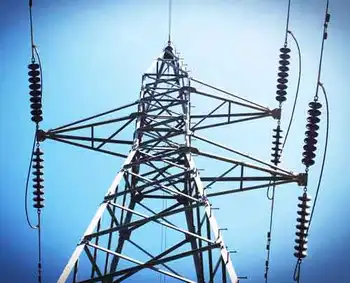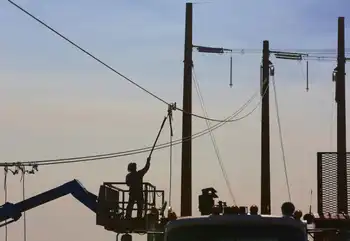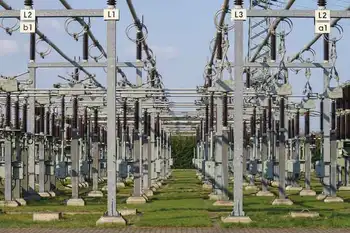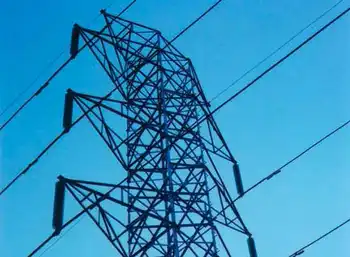Southwest U.S. firms create new transmission group
REACHING OUT - Six southwestern utilities said Thursday they have agreed to create a new, for-profit power transmission group, and hope to eventually broaden its scope to serve the entire U.S. Western power grid.
Arizona Public Service Co. (APS), a unit of Pinnacle West Capital Corp., said in a statement it has signed an initial "Memorandum of Understanding" with five other southwestern transmission owners to create a Regional Transmission Organization (RTO) to be known as WestConnect.
"We will file with FERC (Federal Energy Regulatory Commission) by mid-month," APS spokesman Alan Lee Bunnell said.
It is filing the plan along with Salt River Project, El Paso Electric Co. , Public Service Company of New Mexico , Tucson Electric Power Co., a unit of UniSource Energy Corp. , and Texas-New Mexico Power Co.
RTOs establish common rules aimed at allowing utilities to seamlessly trade bulk electricity across the borders of their own local transmission systems.
The chairman of FERC, which has given high priority to RTOs, has proposed giving reluctant U.S. utilities until Dec. 15 to join an RTO or lose the right to sell electricity in the wholesale market. The plan has not been voted on.
Although RTOs can be either not-for-profit, known as Independent System Operators (ISOs), or for-profit, many utilities espouse the latter model.
This is also true of WestConnect, which will be governed by a for-profit board based on policies developed over the last four years for its predecessor DesertSTAR, a non-profit RTO originally intended to coordinate wholesale generation and transmission deals among southwestern utilities.
"The group has decided that a for-profit governance structure is in the best interest of the utilities," APS President Jack Davis said in the statement. WestConnect hopes to be operational by late 2003 or early 2004.
REACHING OUT The six southwestern utilities hope to broaden WestConnect by bringing in other members of DesertSTAR and members of other regional RTOs in the West and the Pacific Northwest.
Pending FERC approval, WestConnect will take the place of DesertSTAR, and the new, for-profit RTO hopes to eventually bring in the "couple of dozen" members of its predecessor.
"We have received positive feedback from all of the organizations of DesertSTAR," Bunnell said, adding that members of DesertSTAR include regional electrical cooperatives and municipal electric utility companies.
"Our ultimate goal is to bring to life FERC's goal of having four RTOs in the continental United States," he said.
FERC wants to limit the number of RTOs in the nation to one each in the Northeast, South, Midwest and West.
But FERC Chairman Pat Wood said last month that its stance will be "not as aggressive" for integrating DesertSTAR - now WestConnect - and RTO West, a rival transmission group that is awaiting approval from the federal commission.
RTO West, consisting of nine Northwest utilities, including the giant federal power marketer Bonneville Power Authority (BPA), said the rival group's transformation to a for-profit from a non-profit transmission group will not change things.
"DesertSTAR's going to WestConnect won't have a negative impact on moving forward on discussions for creating a West-wide market consisting of the three RTOs, RTO West, WestConnect and the California ISO," said BPA spokesman Mike Hansen.
He said Portland, Oregon-based BPA will continue to operate as a non-profit entity.
A WEST RTO? But players say bringing talks into the realm of possibly merging the three transmission groups into one all-West RTO are currently not in the cards, and are instead focusing on forming a Western power market with RTOs coordinating operations more.
"It's challenging enough to create a RTO West here in the Northwest and (to take) another step forward to deal with seams issues associated with creating a West-wide market," Hansen said. "We're trying to do what we can first."
Canadian utilities, part of RTO West, and the non-profit California ISO are also participating in talks on how to iron out seams issues to create an interconnected West-wide market.
But Bunnell at APS said the California ISO -- which is owed money for power purchases as wholesale power prices skyrocketed last winter and this spring due to a a flawed deregulation law -- needs to work out its own issues first.
California would be a big player in any Western power market, which would roughly encompass the current boundaries of the Western Systems Coordinating Council (WSCC), one of the 10 electric reliability councils in North America.
About 24 percent of WSCC's nearly 115,600 miles of transmission lines are located in California and Baja Mexico.
The majority -- almost 54 percent -- is located in the Northwest, with BPA accounting for a large portion of this. The West would also be a huge player nationwide.
WSCC, by far the largest of the 10 councils, encompasses a geographic area equivalent to over half the United States and provides electricity to 65 million people in 14 Western states, two Canadian provinces, and portions of one Mexican state.
Related News
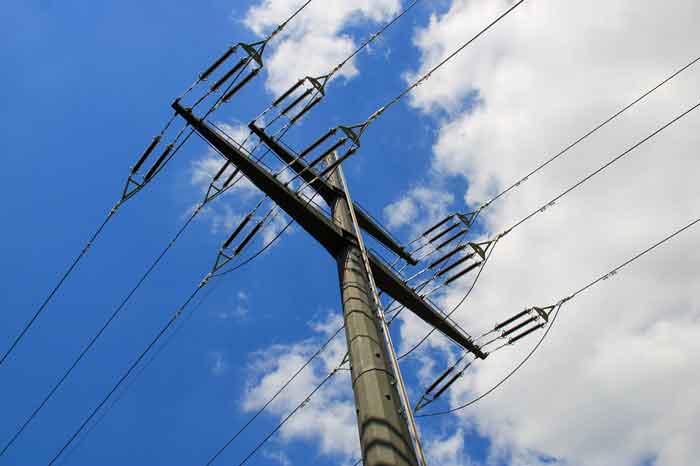
Strong Winds Knock Out Power Across Miami Valley
MIAMI - On a recent day, powerful winds tore through the Miami Valley, causing significant disruption across the region. The storm, which was accompanied by gusts reaching dangerous speeds, led to widespread power outages affecting thousands of homes and businesses. As trees fell and power lines were snapped, many residents found themselves without electricity for hours, and in some cases, even days.
The high winds, which were part of a larger weather system moving through the area, left a trail of destruction in their wake. In addition to power outages, there were reports of damage to buildings, vehicles, and other…

